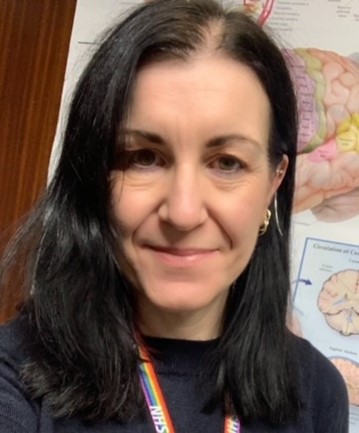The UK has one of the highest drug-induced death rates in Europe with 76 deaths reported per million population, this crisis has been exacerbated further by the Covid-19 pandemic.[1] The impacts of the pandemic on substance abuse were further indicated by the 18.6% increase in alcohol-specific deaths from 2019 to 2020, according to the Office for National Statistics.[2]
To address this growing crisis, Dame Carol Black published part 1 of the independent review of drugs which highlighted a need for better integration between public services to target drugs and substance abuse. [3]To specifically target alcohol misuse as well, the Welsh Government has introduced a Minimum Unit Pricing on all alcoholic drinks, as increasing the price of alcohol has been evidenced to encourage heavy drinkers to drink less.[4]
We heard from Dr Julia Lewis, a consultant addiction psychiatrist and a member of the Welsh Government’s National Partnership Board for Substance Misuse, about some of the changes local and national governments are making to tackle alcohol and substance misuse. She went on to share more on spoke to us about the long-term impacts of alcohol misuse, specifically her research into Alcohol-Related Brain Damage in adults.


MGC: How can authorities work better to help deliver holistic support to people who use substances?
MGC: How could local authorities communicate better with other local organisations and the government to tackle substance misuse?
Julia: I work in Wales and so my day to day experience with government and local authorities and other organisations is the Welsh experience. This experience is different to all the other countries in the UK, undoubtedly there are shared themes between trusts but the experience is fundamentally different. One of the things I have noticed from sitting on various boards and groups is that most agencies involved in providing services need to have a representative at every level of care. Many different services, because of this, have effectively got the same positions represented at every level. These individuals need to communicate regularly, because with regular communication comes a better delivery of services.
[…]Often we try to get funding for a project or something, and potentially other organisations have data that could help up get this funding. Having open conversations between organisations about care and services would make these processes a lot easier. If we have open conversations at every level of service, it will be easier to deliver support to individuals. Organisations share data, and projects that are or aren’t working so we can identify what services are already being delivered.
[…] When you work with an individual who may be involved with different agencies, the agencies need to work together. It is only then that successful wrap-around care can be delivered. […] Often, there is a lot of fear around sharing data and having these conversations, but I think if basic awareness is used then we can better understand what should be shared to provide better support. There needs to be information sharing protocols in place when providing care to protect patient confidentiality, these protocols underpin patient care. However, basic training and awareness on what can and can’t be shared would be beneficial in improving services. Sometimes there are circumstances where confidentiality can be breached, and information is shared between organisations.
A lot of people are scared to have these conversations for fear of breaching confidentiality, but often the information shared improves the experience for the person with the problem. There is a problem with communication at all levels of care, from government and planning services down to the individual who has the issue. If we improve this communication between organisations then I believe we can improve wrap-around support for those individuals who need support.
MGC: What can service providers do to help destigmatise support services and improve outcomes?
[…] The other thing we need to address is the trickle-down effect of the services we provide and health professionals having an awareness of what we do. Junior doctors and medical students training now have a greater awareness and interest in our work and services which is incredibly different when compared to those training a few years ago.
[…] At Cardiff University, medical students have exposure to the services in their first year, as part of their training involves talking to me about addiction and addiction services. This has helped to break down some of the stigmas around addiction. To me it demonstrates the earlier someone is introduced to the work of services during in their training, the more we can destigmatise addiction. By destigmatising addiction among those providing care, we can break down the barriers stopping people who have an issue from reaching out for help.
MGC: What is Alcohol-Related Brain Damage (ARBD)?
MGC: Could you tell us a little more about your research into ARBD?
Julia: I am affiliated with the Addiction Research Department at the University of South Wales and we have been linked in with the researchers there looking at Alcohol-Related Brain Damage (ARBD). Currently, we’re in the early stages of planning the research because the partnership arose out of the ARBD Treatment Framework for Wales, which was published by the Welsh government. The framework was something that myself and several colleagues, including researchers from the University of South Wales were involved in writing with Public Health Wales.
[..]The first thing we’re doing, which was identified from the treatment framework, is developing a multi-level training package for health and social care across Wales that is awareness-raising. Through this package, we are making sure people know what ARBD looks like and they know what they need to do if they come across someone that has ARBD. From this, they can then understand who to refer the patient to so the individual can get the help they need.
Another researcher I am working with has started to complete work on something called the ‘Frontal lobe paradox.’ The frontal lobe paradox is about individuals who have damage to the frontal lobes of the brain, and this is something we see in the developmental stages of ARBD. The frontal lobe of the brain organises and controls the rest of the brain. If an individual has damaged that, then they would have difficulty with decision-making and understanding the positives and negatives of impulsive action. The phenomenon of the frontal lobe paradox is that you can have a degree of frontal lobe damage which impacts decision-making and planning on a day-to-day basis. Traditional tests of frontal lobe function conducted currently are very poor at picking up how much damage to the frontal lobe does impact day-to-day function. […] We’re starting to look at whether these tests might be an issue for ARBD because this would have a considerable impact on how we conduct things like mental capacity assessments.
We’re also using data I collected a couple of years ago to inform our current research. It consists of a series of 300 individuals who presented to standard alcohol treatment services in Gwent, and to our third sector partner organisation. These people presented for alcohol treatment and they all had a basic screen of cognitive function using a validated scale called the Montreal Cognitive Assessment. We used this scale to get a basic level of understanding of how many people without knowing it, were presenting with some degree of cognitive impairment. We are in the process of taking this data and analysing it, but the rough statistics suggest:
MGC: What can authorities and organisations do to better support people with ARBD?
Julia: […]It’s important to recognise the condition as early as possible and to support the individual because, if you put in the support, you’re hopefully preventing that individual from needing more expensive long-term care. By providing support early on, individuals can be directed to existing services that are much cheaper at the end of the day. To direct people to existing services though, they need to be more accessible.
We often find that a lot of the services individuals need have strict rules that one has to be abstinent from alcohol. For example, we supported an individual with ARBD whose main reason for drinking was boredom. She lived on her own and her social worker supported her to get a job volunteering in a charity shop. They loved the job but it wasn’t full time and, unfortunately, they had a setback in their personal life which caused them to drink again. Since they turned up to work and the employer could smell alcohol on them, the work arrangement was terminated. This caused them to relapse completely, as they’d lost another thing that meant a lot to them.
To support people with ARBD, we need to change the strict rules and regulations slightly. ARBD impacts a person’s mental capacity and decisions so having these strict guidelines in place for them to access support is often more of a hindrance than a help.
This is one of the things I’m constantly having to explain to people. When you talk to somebody with ARBD superficially and because of the way the Mental Capacity Act is set up, service providers can assess capacity in a very brief conversation with someone they might have never met before. People with ARBD will come across as very plausible and will talk quite freely and easily about most things, some will even say to you, ‘of course I realise I mustn’t drink and I’m not going to drink when I go home.’ This makes the service provider assume they have the capacity to make the decisions whether they go home or not. This is where the issue lies. If you scratch below the surface, quite often there is no plan or substance to what the individual is saying.
This is why we need to help people who are taking Mental Capacity Assessments understand they may need to change their approach when talking to people with ARBD so they get the help they need from services. There needs to be someone in each authority area who can get ARBD on the agenda and is responsible for leading awareness training. They can lead by ensuring ARBD is on the agenda of different commissioning groups and local community groups. This would help remind people that you need to consider ARBD specifically when creating a multi-agency wrap-around care system. This is how people can be supported to get the help they need to recover.
Key Takeaways:
- We need to destigmatise addiction within care services to break down the barriers preventing people from seeking help and medical attention
- People with lived experience should be consulted at all levels of care to ensure services are delivered with a lasting impact
- There is a problem with communication at all levels of care and we need to improve this to provide better wrap-around care to patients
- Addiction is a chronic illness and health care professionals need to view it as such to understand what services individuals need
- People can recover from ARBD and raising awareness of the condition among healthcare practitioners and other public service providers will improve the outcomes for those suffering from addiction and substance misuse
[1] Office for National Statistics (2021), Deaths related to drug poisoning in England and Wales: 2020 registrations
[2] Office for National Statistics (2021), Alcohol-specific deaths in the UK: registered in 2020
[3] Dame Carol Black, Home Office (2019), Independent review of drugs, part 1
[4]Alcohol Change UK (2020), Minimum price for alcohol in Wales – what does it mean for you?
Register FREE to access 2 more articles
We hope you’ve enjoyed your first article on GE Insights. To access 2 more articles for free, register now to join the Government Events community.
(Use discount code CPWR50)



